2023 was a year of taking stock for both our school and the field of public health as the worst of the pandemic wound down. Our researchers examined the effects of COVID-19, including changes to the public health workforce, the shift to virtual care, who suffered the most deaths, and which populations were prioritized in the vaccine rollout — vital issues to investigate for the entire field. They continue this work, as well as exploring how we can be more prepared for the next pandemic.
This past year, our school also looked inward to ask: Have two years of intentional work to become an antiracist organization changed our community for the better? The answer is yes, with the knowledge that we have so much more work to do.
In January, we’ll welcome Melinda Pettigrew as our new dean. Her personal and professional commitment to academic excellence and a culture of inclusion will continue at SPH as she guides our school to be the top-trusted source for public health information, essential research, and well-trained graduates.
In the data, stories, and photos below, you’ll get a glimpse of what our school has done this year to make the world a healthier place through our research, teaching, and relationships with our community. Here’s to continued growth and a peaceful 2024!

Welcome, Dean Melinda Pettigrew!
In January, 2024, the School of Public Health welcomes Dr. Melinda M. Pettigrew as the school’s eighth dean.
An experienced academic leader and accomplished researcher and educator, Dr. Pettigrew will work collaboratively to maintain and enhance SPH leadership in advancing population health and health equity in Minnesota and beyond.
She is particularly excited to join SPH, which she says aligns with her values to be part of a community where education and practice are important, and where people are committed to creating an antiracist institution.
“The School of Public Health is a great school within the context of a strong university with a lot of resources that, frankly, aren’t as available at other places,” says Pettigrew. “For example, I do One Health research — antibiotic resistance — so it’s exciting to have six health sciences schools in one place. And there are all these programs at the U, such as the Humphrey School of Public Affairs, that SPH can work with to really tackle the major public health issues that are coming our way.”
SPH by the Numbers
Our students, faculty, staff, and alumni improve the health and wellbeing of populations and communities around the world by bringing innovative research, learning, and concrete action to today’s biggest health challenges. We prepare some of the most influential leaders in the field and partner with health departments, communities, and policymakers to advance health equity for all.
#6
public school of public health*
#2
Master in Healthcare Administration program*
99%
of students are employed within 12 months of graduating
$1.68M+
in scholarship funds awarded
#2
NIH funding among University of Minnesota schools and colleges
#3
largest research portfolio at the University of Minnesota
$622K
average research funding per faculty member
$100M+
grant funding in 2023
11,518
media mentions in 2022
* U.S. News and World Report

- 391+ staff
- 22% American Indian/Alaska Native and staff of color
- 131+ faculty
- 24% American Indian/Alaska Native and faculty of color
- 980 students
- 30.5% American Indian and students of color
- 12,600+ alumni
- 119 alumni mentors (MHA alumni mentoring program)
- 130 mentees (MHA alumni mentoring program)
Taking Stock
After more than two years of intentional action toward antiracism, equity, justice, and inclusion, how has our school changed?
Since launching its Strategic Plan for Antiracism (SPAR) in July 2021, our school has consciously worked to embed antiracism, equity, and justice in everything we do. To hold ourselves accountable, we developed ways to gather, analyze, and report data related to our antiracism efforts and we convey that information on our website, in an annual report, and through a biennial climate assessment.
A climate assessment of the school in 2022 showed positive shifts in the culture compared to responses in a 2020 survey. For example, in 2022:
- 32% more respondents felt that SPH makes decisions that reflect a commitment to diversity, equity, and inclusion.
- 21% more respondents felt that SPH is inclusive and welcoming to BIPOC and American Indian people.
- There was a 6% increase in BIPOC and American Indian staff (22% total in 2022).
- There was a 5% increase in BIPOC and American Indian faculty (24% total in 2022).
- There was a 2% increase in BIPOC and American Indian students (29% total in 2022).
As we continue to implement our Strategic Plan for Antiracism, we know that the magnitude of this process requires constant assessment and adjustment to ensure the plan reflects the changes we want to see and remains an authentic reflection of our school.
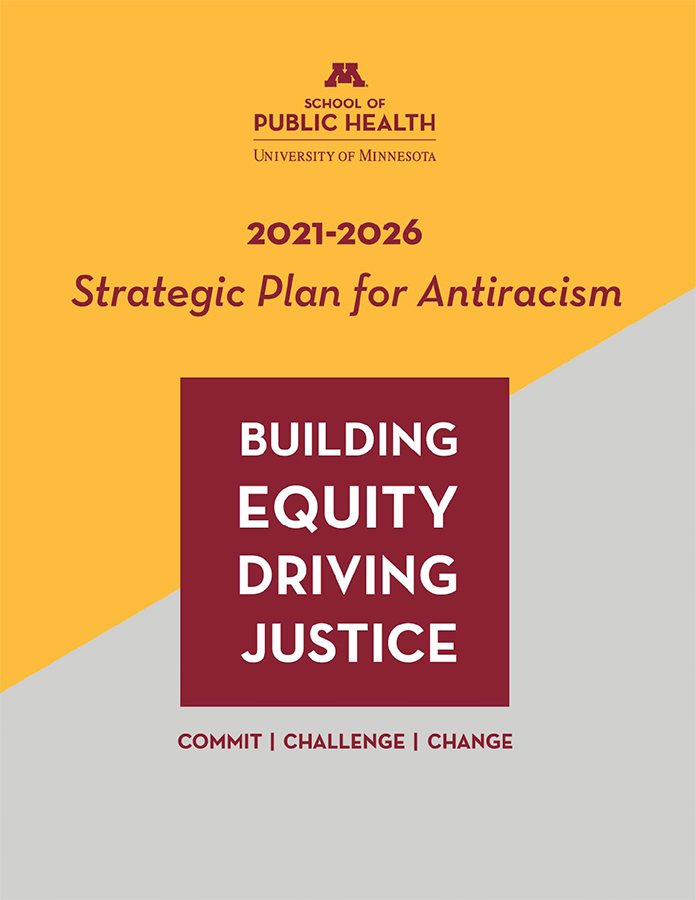
“The work is never done,” says DEI Director Lauren Jones. “We will always be working toward being more inclusive and justice centered.”

The Undergraduate Degree Program Launches
The first cohort of SPH undergraduates earning a BA in public health started this fall, marking a historic milestone for the school. The junior-admitting program builds on SPH’s decade-long history of offering undergraduate programming through the public health minor, the second-largest minor at the University. The curriculum provides students with a solid understanding of pressing public health challenges, ways to approach and combat health concerns, and the ability to influence societal structures that lead to poor health outcomes. It also serves as a way to bolster the public health workforce, which is in need of many more well-trained graduates prepared for entry-level positions.
Cannabis Research Center Established
The University of Minnesota School of Public Health launched the Cannabis Research Center (CRC) to serve as a trusted source of information in the nascent field of cannabis research. CRC’s work will answer common questions on how recreational cannabis is used, its impact on health and health behaviors, and how different populations and communities are affected to help form policies and practices that protect the public’s health.

Antiracist Animated Video Series
SPH produced a suite of animated videos aimed at educating students, researchers, faculty, staff, and the general public about antiracism as part of our Strategic Plan for Antiracism. The videos explore different topics related to antiracism, justice, and equity and public health in an easily digestible format. These videos were designed to be used as free resources for those studying and working in the field of public health. The award-winning videos, completed in 2023, include:
2023 SPH Initiatives
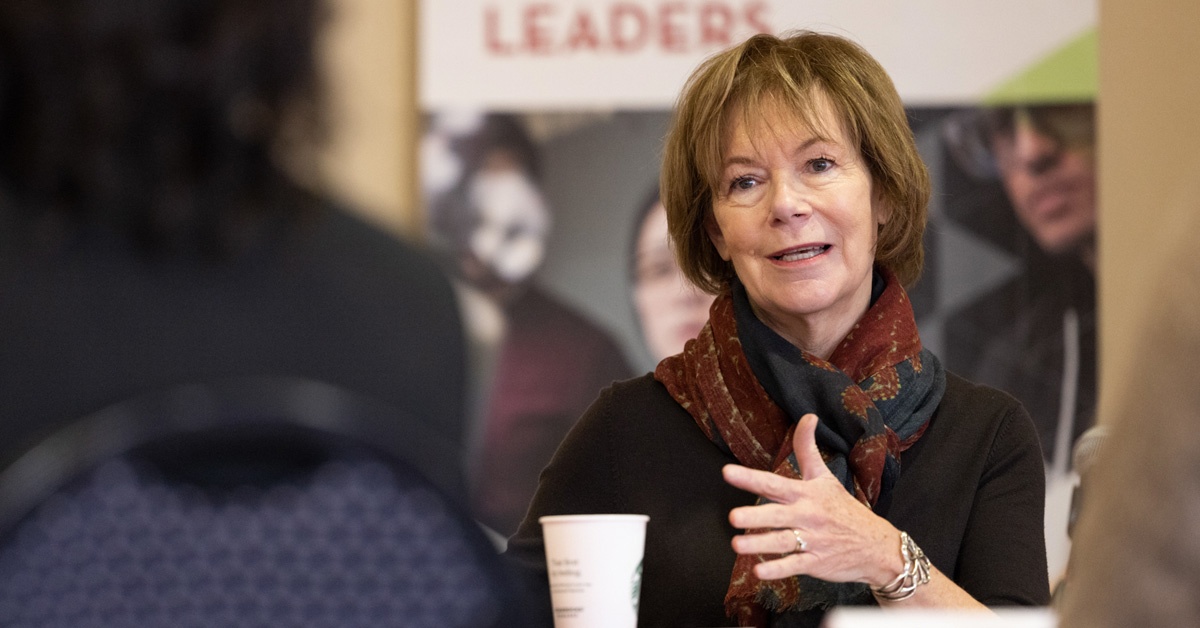
Public Health Workforce Programs Bring Senator Tina Smith to SPH
U.S. Senator Tina Smith visited SPH in January 2023 to learn more about the school’s research and national leadership to address the nation’s ongoing public health workforce shortage. She was especially interested in the new Consortium for Workforce Research in Public Health (CWORPH). The SPH Center for Public Health Systems leads the consortium that addresses public health workforce challenges through research, evaluation, and analysis.
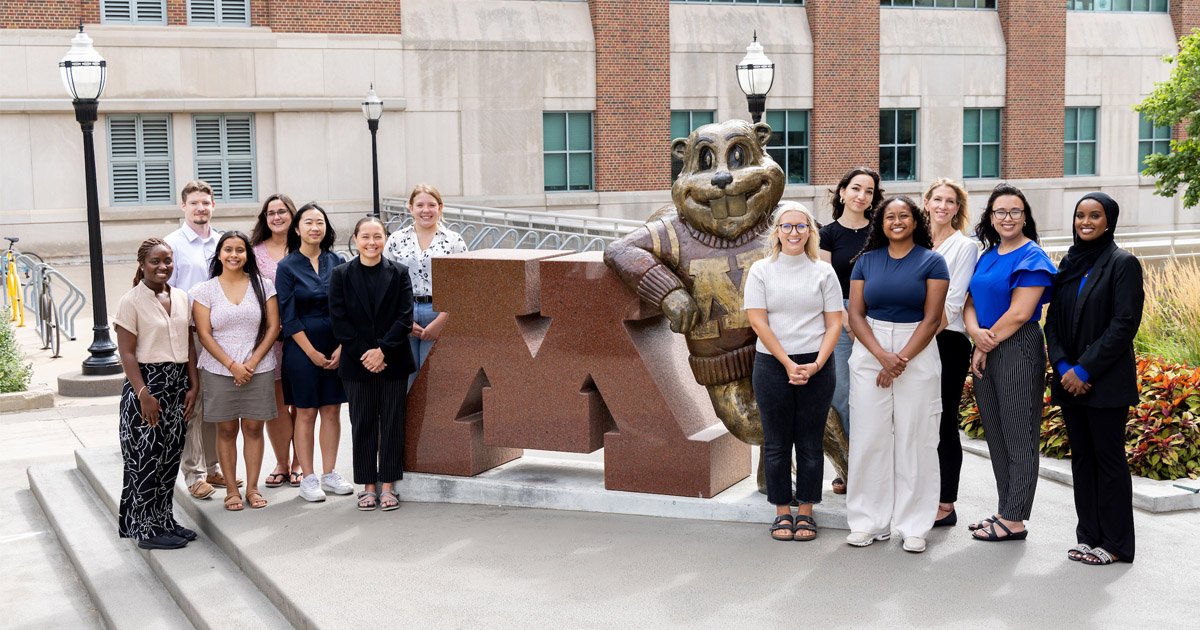
Public Health Traineeship Offers Scholarships to Strengthen the Workforce
A new partnership program between SPH and the Minnesota Department of Health provides scholarship assistance to students seeking a master of public health from SPH. Funded by the federal Health Resources and Services Administration, the “Public Health Traineeship” scholarship program focuses on addressing inequities in our public health system, improving emergency preparedness and response, and increasing the size of the public health workforce. SPH administrators estimate that 45 scholarships covering tuition and fees will be awarded during the initial, three-year, $1.5 million grant.
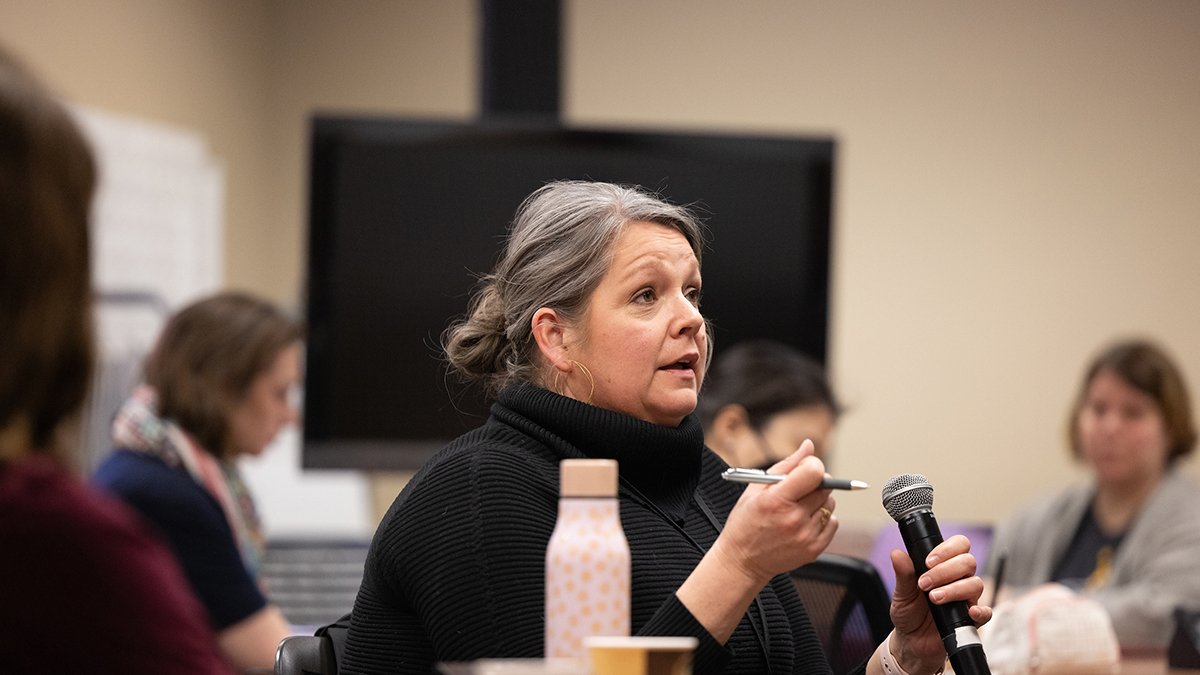
St. Paul Public Schools Partnership
The SPH Division of Biostatistics & Health Data Science is partnering with St. Paul Public Schools (SPPS) to create career pathways into public health for secondary students. In March 2023, SPPS educators spent the day at SPH learning about opportunities for their students in a broad array of public health careers.
Mayo Clinic Academic Partnership
SPH’s Executive MHA program launched a new collaboration with the Mayo Clinic’s Career Investment program. The program offers opportunities for Mayo Clinic health professionals to earn degrees in their field while still working in their professional roles. Six Mayo Clinic employees have completed their MHA degree, with double that number currently enrolled and more students planning to start in 2024.
Creating Opportunities for Undergraduate Research in Data Science
SPH and the Masonic Institute for the Developing Brain will host a 10-week undergraduate course devoted to equitable data science in summer 2024. The new course will give students the opportunity to investigate how biases in data and data analysis can reinforce and contribute to social and health inequities. The course, made possible through a National Science Foundation grant, will also help students develop their research skills in data science, statistical modeling, machine learning, and scientific communication.
SPH Selected to Help Develop a Midwest National Outbreak Response Network
SPH in collaboration with the Minnesota Department of Health (MDH) received $17.5 million to help establish an outbreak response network to support decision makers during public health emergencies. As one of 13 funded partners across the U.S., researchers at UMN and MDH will work alongside the CDC’s Center for Forecasting and Outbreak Analytics (CFA) to support the new national network — the Outbreak Analytics and Disease Modeling Network (OADM).
2023 Research Highlights

New Study will Measure Access to Green Spaces and Health Outcomes
A new tool will measure how access to green spaces can affect health outcomes for urban residents, and the underlying inequities in urban planning. SPH Professor Mark Pereira and SPH doctoral student Christine Prissel are developing the Urban Greenspace Access Score (UGAS), which will measure neighborhoods’ access to green spaces. The study will test whether residents with limited access to the Twin Cities’ acclaimed green spaces have worse health outcomes than residents who have better access. This is especially relevant in a metropolitan area with a history of redlining, the discriminatory practice of denying residents of ethnic and religious minorities loans to buy homes in certain areas.
Study Reveals Disparities in Minnesota’s COVID-19 Vaccination Rates
New research from SPH’s State Health Access Data Assistance Center (SHADAC) shows that some communities were left under-vaccinated significantly longer than others. Specifically, the study calculated “time-to-vaccination” outcomes — estimates of the length of time it took to vaccinate 50% of people in different demographic subgroups — which reveal egregious examples of the inequities in Minnesota’s COVID-19 vaccination efforts. It found, among other things, a large disparity in vaccinations of American Indian and Alaskan Native populations compared to white people, and that Black and Latino Minnesotans were left unvaccinated twice as long as the white population.
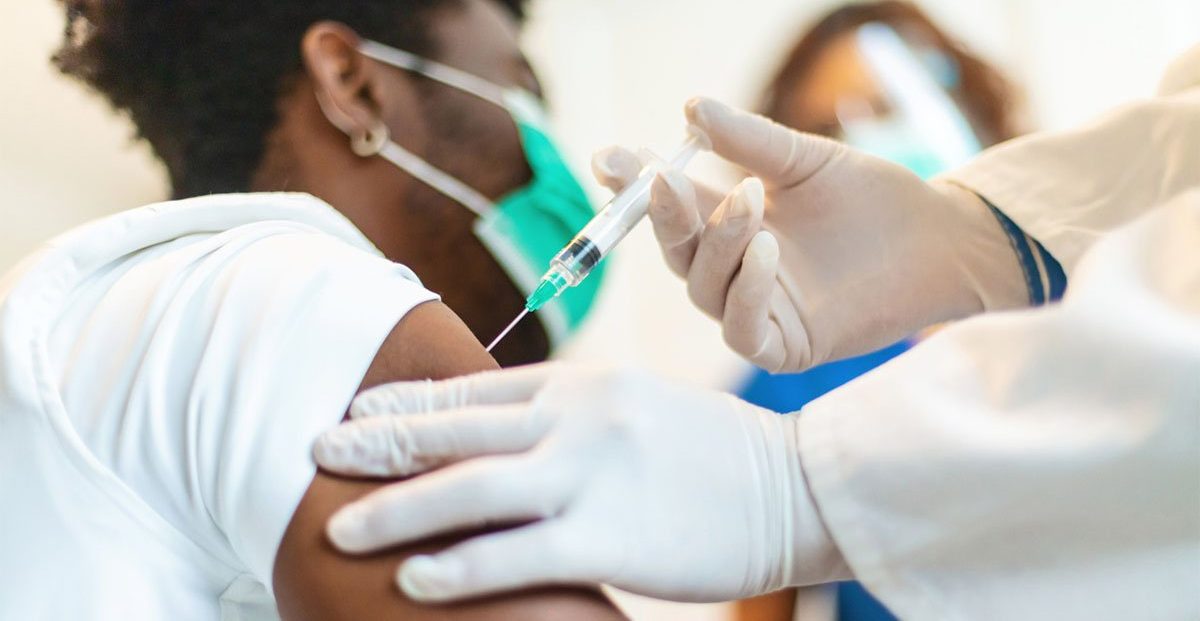

Link Found Between Artificial Sweeteners and Weight Gain
A study co-led by researchers at SPH and the UMN Medical School found that long-term consumption of aspartame, saccharin, and diet beverages were linked to increased fat stores in the abdomen and fat within muscle. SPH Professor Lyn Steffen, a principal investigator on the study, advised that the findings “underscore the importance of finding alternatives to artificial sweeteners in foods and beverages, especially since these added sweeteners may have negative health consequences.”
School-Based Mental Health Services Can Positively Affect Youth Mental Health
A new study led by Associate Professor Ezra Golberstein researched the effectiveness of placing licensed mental health clinicians who work for mental health agencies directly in schools, complementing the existing capacity of school counselors and social workers. Researchers studied data from 263 K-12 schools in Minnesota’s Hennepin County who used school-based mental health services and found that they increased students’ access to mental health services by 8% and that rates of attempted suicide decreased by 15%, averting approximately 260 self-reported suicide attempts per year.


Exploring the Health Impacts of Homeless Camp Closures
While people have long debated the efficacy and ethics of homeless encampment sweeps, very little is known about their possible impact on the health of people experiencing homelessness. A new study led by Assistant Professor Kumi Smith will examine this topic, testing the hypothesis that encampment sweeps may harm the health of homeless people through material loss, trauma, and community fragmentation.
White House Highlights SPH Program to Reduce Commercial Tobacco Use Among American Indians
In September, the Biden Administration unveiled new federal programs and commitments it has secured from non-governmental organizations and the private sector to advance the Administration’s ambitious goal to reduce cancer death rates by 50% in the next 25 years as part of the Cancer Moonshot program. Among the resources included in the White House’s cancer-prevention efforts is a collaboration led by Assistant Professor Dana Carroll and the American Indian Cancer Foundation to launch SmokeFreeNative, a text messaging program to help American Indian and Alaska Native adolescents and adults quit smoking.
10 New Faculty Join SPH!

Erjia Cui is an Assistant Professor in the Division of Biostatistics & Health Data Science. His main area of focus is conducting research in statistical methods and their applications, with a particular emphasis on functional data analysis, wearable technology, biomedical imaging, and complex, high-dimensional data.
Andrew Fenelon joined SPH as an associate professor in the Division of Health Policy & Management. He is interested in the social and policy determinants of population health in the U.S. Specifically, his work focuses on how housing policies can be used to reduce health disparities related to socioeconomic status and race/ethnicity.

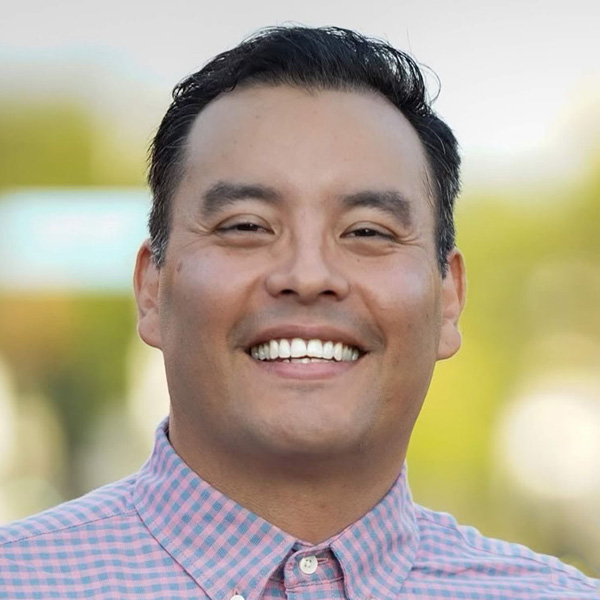
Kyle X. Hill joined SPH in the Division of Environmental Health Sciences as an assistant professor. He is active in community-based participatory research with American Indian and First Nations communities in the U.S. and Canada. Specifically, his research considers the social, political, and ecological determinants of Indigenous health, as well as the intersection of climate justice and land-based healing within Indigenous communities.
Trân Huỳnh joined SPH as an associate professor in the Division of Environmental Health Sciences. Her research explores the overlap of community-based participatory research and worker health. Her goal is to improve working conditions for immigrants and other vulnerable populations.
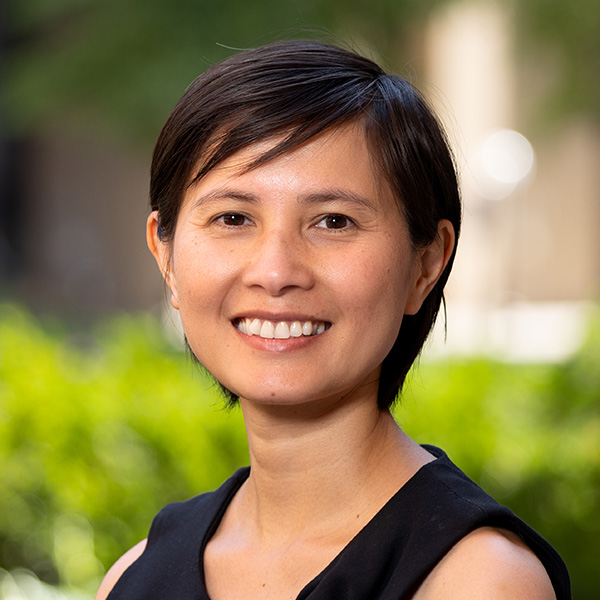
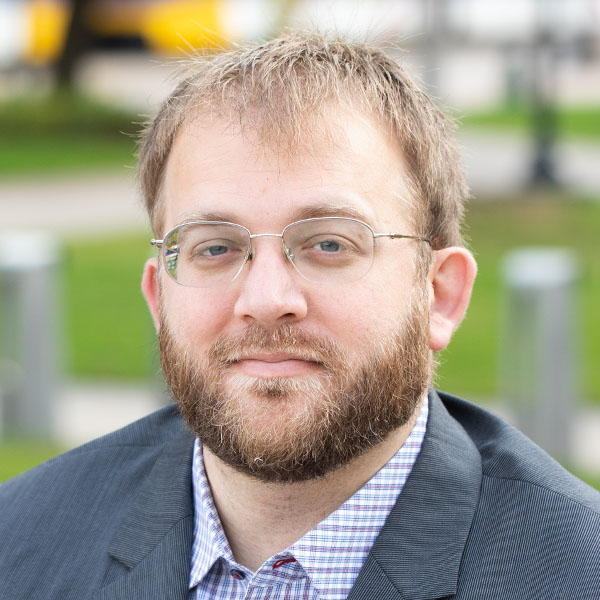
JP Leider leads the Center for Public Health Systems and joined the faculty in the Division of Health Policy & Management as an associate professor following years of service as a research fellow in the division. His primary research interests are in the financing and functioning of public health systems.
Paige Nong joined the Division of Health Policy & Management as an assistant professor. She studies the health information technology ecosystem to better understand how technologies can improve care, reflect patient interests, and counteract structural inequities.


Faye Norby joined SPH as an assistant professor in the Division of Epidemiology & Community Health. As a cardiovascular epidemiologist, she explores the prevention and prediction of cardiac and neurological events, as well as adverse cardiac outcomes, cardiac health and substance abuse, and the interaction of heart structure and cognitive decline.
Harrison Quick is an associate professor in the Division of Biostatistics & Health Data Science. Using Bayesian methodology, he collaborates with experts from federal, state, and local health departments to investigate geographic and racial/ethnic disparities in public health outcomes and explores ways to expand access to public health data while preserving the privacy of the underlying data subjects.
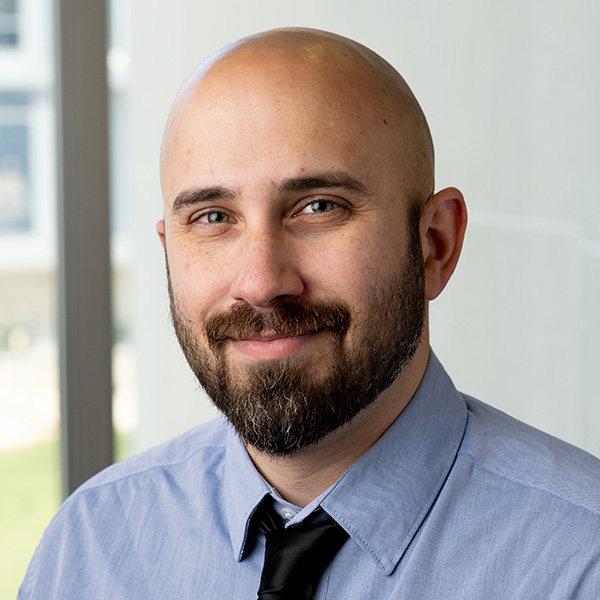

J. Sunil Rao joined SPH as a professor in the Division of Biostatistics & Health Data Science. He is the director of biostatistics at the Masonic Cancer Center and his research focuses on developing statistical methods for modeling complex data. He is particularly interested in predictive machine learning, small area estimation, and health disparities.
Zinzi Bailey joined SPH as an associate professor in the Division of Epidemiology & Community Health.

2023 Awards and Recognitions
- Regents Professorship: Professor Dianne Neumark-Sztainer
- Josie R. Johnson Human Rights Award: DEI Director Lauren Jones
- Emerging Scholars grant from the Society of Family Planning: Phd Student Nicole Quinones
- Academy of Excellence in Team Science: Assistant Professor Jon Oliver
- Climate and Health Equity fellowship: Researcher Jocelyn Leung, Center for Public Health Systems,
- Early Career Investigator Award from the National Institute on Minority Health and Health Disparities: Assistant Professor Dana Carroll
- Early Career Achievement Award from the Academy of Management Division of Health Care Management: Assistant Professor Dori Cross
- Early-Stage Investigator Award from the Academy of Behavioral Medicine Research: Assistant Professor Ivan Wu
- President’s Award for Outstanding Service: Lecturer Marta Shore
- Community-Engaged Scholar Award: Professor Rachel Hardeman
- STAT News Status Leader: Professor Rachel Hardeman
- Distinguished McKnight University Professorship: Professor Ellen Demerath
- Distinguished McKnight University Professorship: Professor Joe Gaugler
- McKnight Land-Grant Professorship: Assistant Professor Sandra Safo
- Sara Evans Faculty Woman Scholar/Leader Award: Professor Shalini Kulasingam
- Fellow of the American Statistical Association: Professor Joe Koopmeiners

